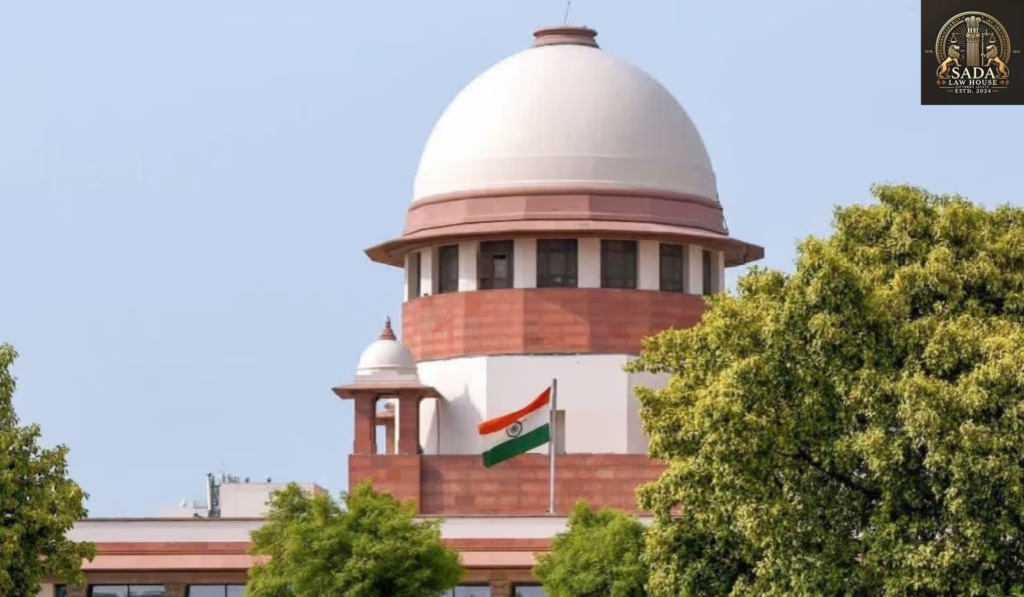Supreme Court Rules Land Registration Isn’t Proof of Ownership: Legal Documentation Still Essential
Trending Today Supreme Court Rules Land Registration Isn’t Proof of Ownership: Legal Documentation Still Essential Supreme Court to Decide on Consecutive Life Sentences: Landmark Case on Criminal Sentencing in India Supreme Court Grants Bail to Andhra Journalist Over Controversial TV Show Remarks NCLT Admits Gensol Engineering to Insolvency Process Amid SEBI Probe and ₹992 Crore Debt Kerala High Court Raises Alarm Over Microplastics in Food Delivery Containers and Potential Health Risks Delhi High Court Denies Bail to Kashmiri Separatist Leader Shabir Shah in UAPA Terror Case Supreme Court Seeks Karnataka’s Response on Thug Life Film Ban Amid Kamal Haasan Controversy Air India Flight AI171 Crash: 265 Dead, 1 Survivor in Ahmedabad Tragedy Involving Boeing 787 LEGAL INTERNSHIP OPPORTUNITY AT ADITI MOHONI LEGAL JOB OPPORTUNITY AT INDIAMART Supreme Court Rules Land Registration Isn’t Proof of Ownership: Legal Documentation Still Essential Kashish jahan 16 June 2025 The Supreme Court of India has ruled that land registration alone doesn’t confirm property ownership. Learn what this means for buyers, lawyers, and the real estate industry. Landmark Ruling on Property Ownership – What You Need to Know On June 10, 2025, the Supreme Court of India delivered a pivotal verdict on land and property rights. The Court ruled that land registration, although a legal requirement, does not independently establish ownership of immovable property. To hold a valid legal title, property holders must present supporting documentation such as sale deeds, inheritance papers, and other proof of entitlement. Why Land Registration Alone Isn’t Enough Legal Title Requires Supporting Documentation This ruling underlines that a registered property title is procedural, not proof of rightful ownership. Ownership must be backed by authentic legal documents in accordance with Indian property law. Failing to establish a valid chain of ownership can leave buyers vulnerable to future property disputes or litigation. Implications for Property Buyers and Stakeholders For homebuyers, real estate agents, lawyers, and financial institutions such as banks, this decision necessitates a stronger focus on due diligence. Land registration must now be seen as one step in a broader legal verification process. Reducing Risk of Property Disputes The judgment aims to minimize common issues in the Indian real estate sector, such as: Use of forged documents Disputes over title transfer Misunderstandings around the legal weight of registration With this ruling, the Supreme Court seeks to strengthen property ownership laws and reduce the legal burden on courts handling land disputes. Impact on the Real Estate Sector Tighter Regulations and Compliance Ahead This verdict is likely to trigger regulatory reform across India’s real estate industry. Key changes may include: Mandatory title due diligence before property sales Increased adoption of title insurance Stricter scrutiny by financial institutions before approving loans These steps can help build a more secure and transparent property transaction ecosystem. Key Takeaways for Property Transactions Land registration is not proof of ownership by itself. Valid legal documentation is essential to establish property rights. All parties must engage in comprehensive legal checks before transactions. The ruling encourages responsible practices across India’s real estate market. Final Thoughts The Supreme Court ruling is a game-changer for property law in India. It makes clear that ownership is a legal matter, not just an administrative record. This decision offers greater clarity, helps prevent real estate fraud, and reinforces the need for due diligence in every property deal. Leave a Reply Cancel Reply Logged in as Sada Law. Edit your profile. Log out? Required fields are marked * Message* Case Laws Supreme Court Affirms Right to Anticipatory Bail Across States in Matrimonial Disputes: Priya Indoria v. State of Karnataka (2023) Sada Law • June 13, 2025 • Case law • No Comments Supreme Court Rules on Governor’s Limited Discretion to Withhold Assent and Summon Punjab Legislative Assembly | State of Punjab v. Principal Secretary (2023) Sada Law • June 13, 2025 • Case law • No Comments Supreme Court Judgment on Chargesheets: Not Public Documents, No Mandatory Online Upload by Investigating Agencies | Saurav Das v. Union of India (2023) Sada Law • June 13, 2025 • Case law • No Comments 1 2 3 … 5 Next »


